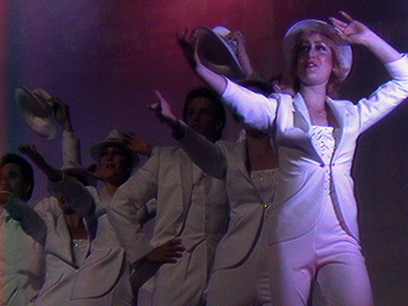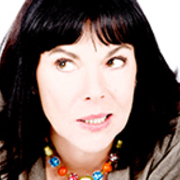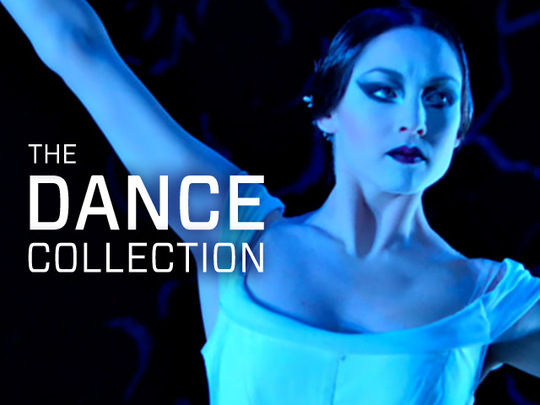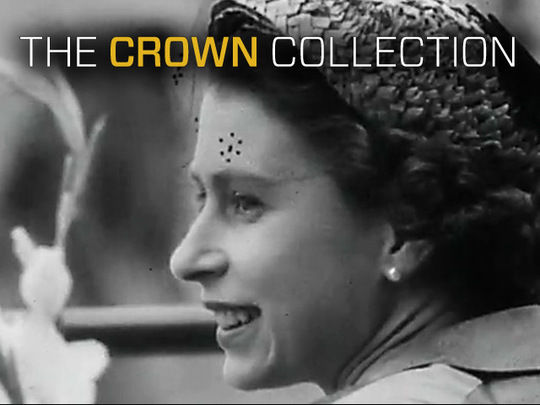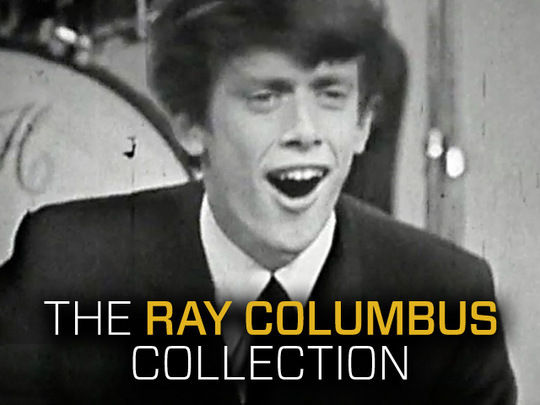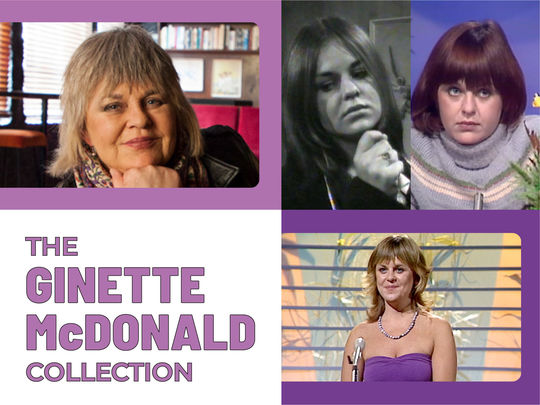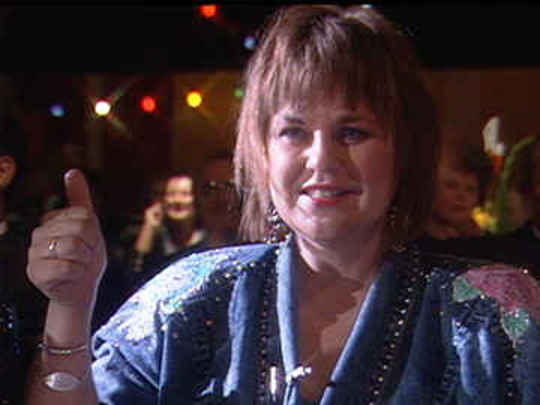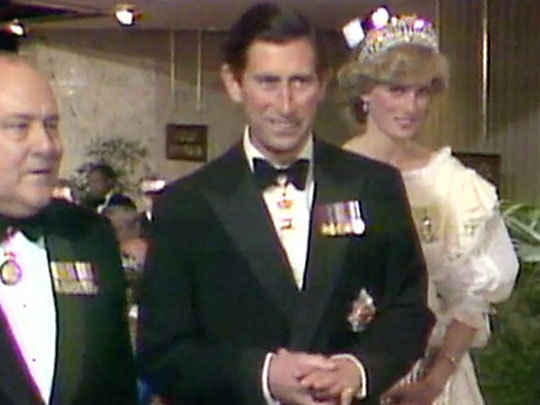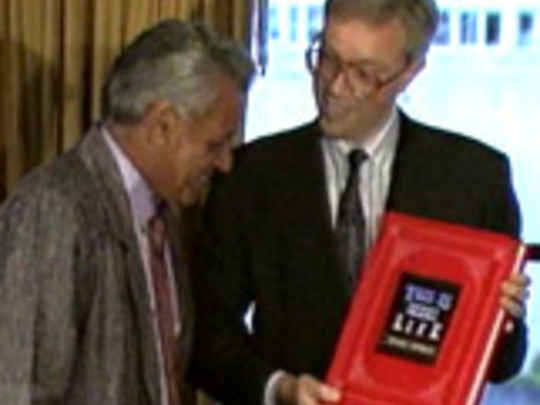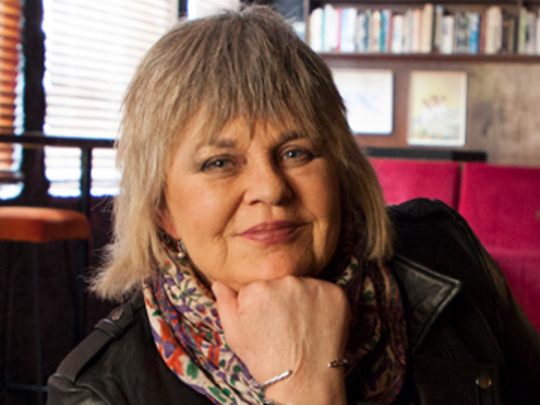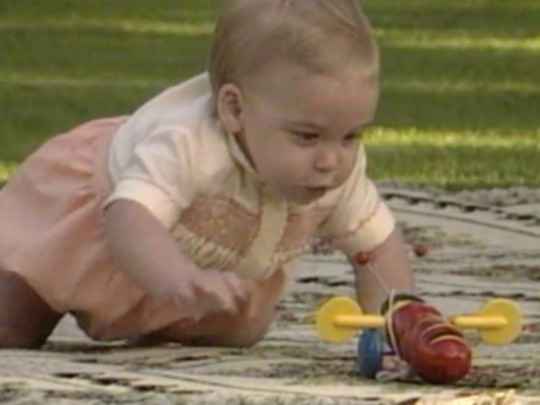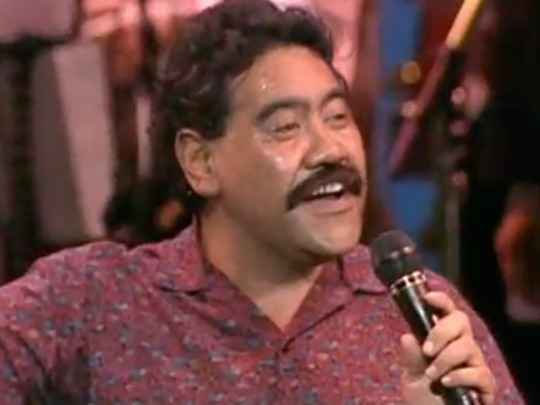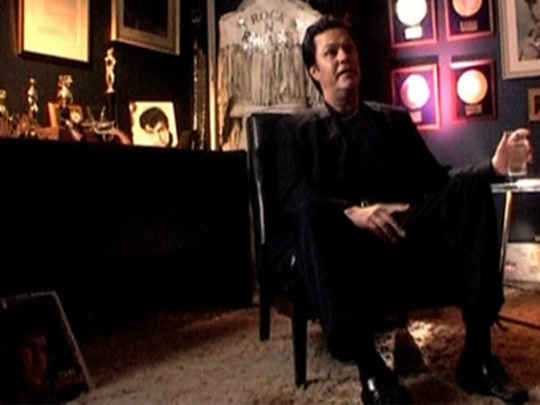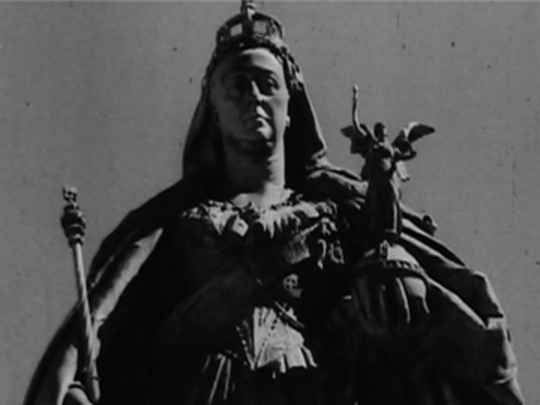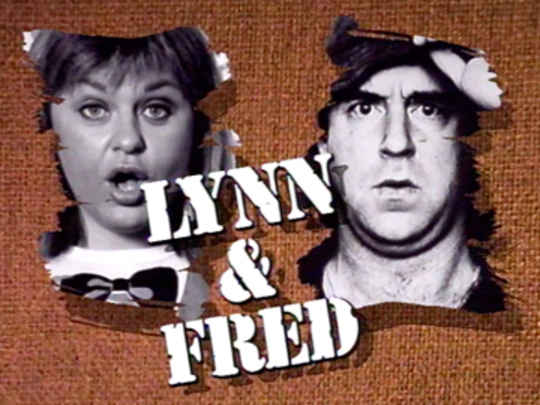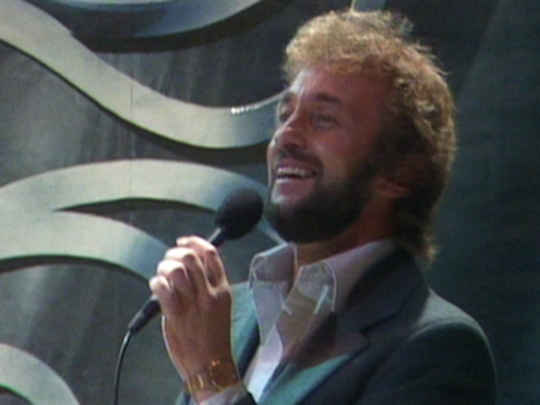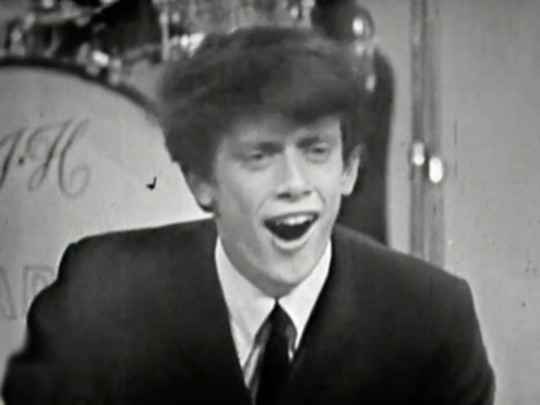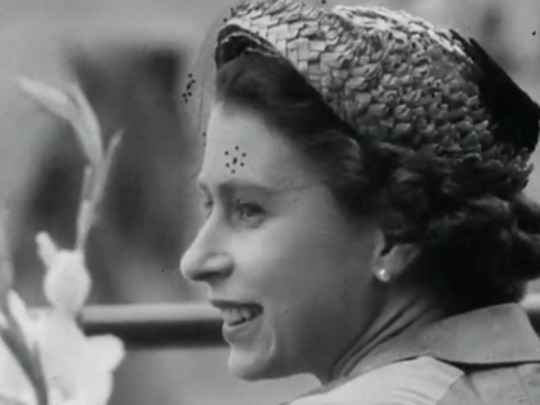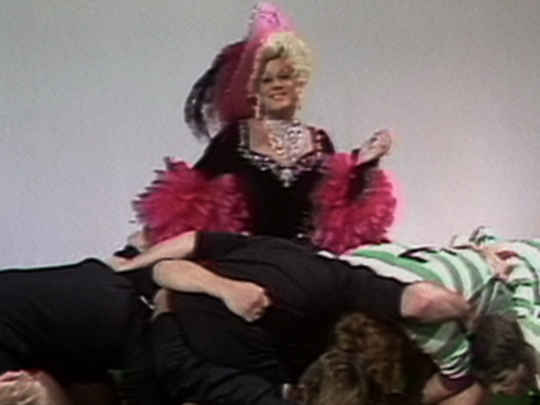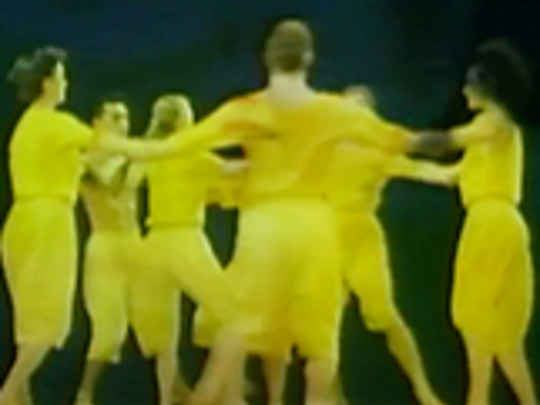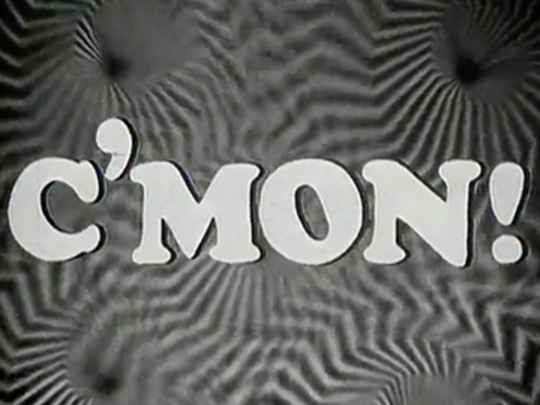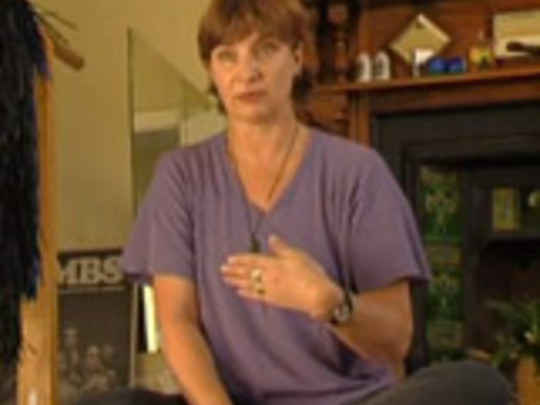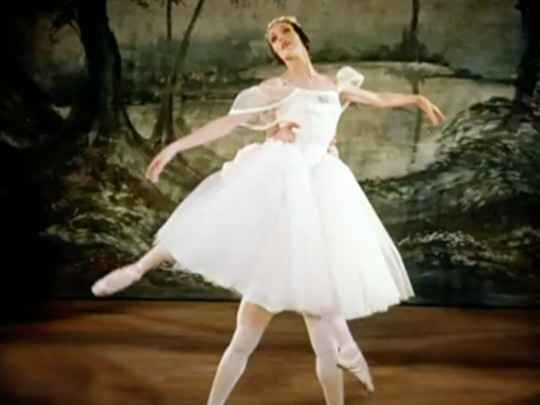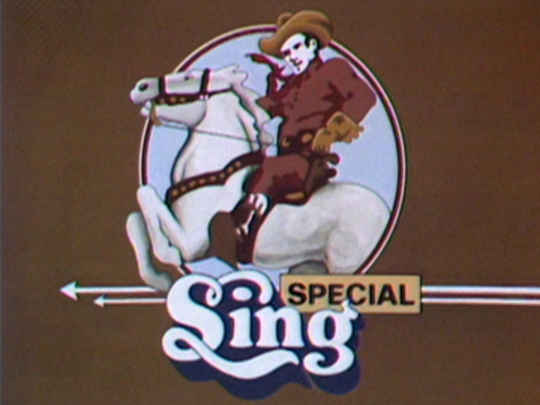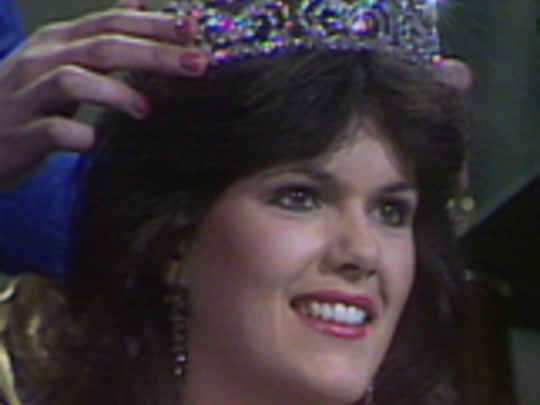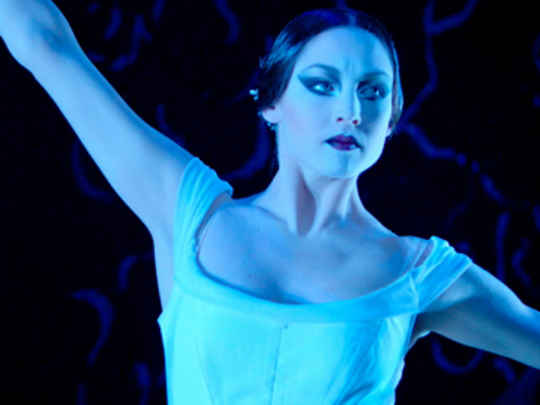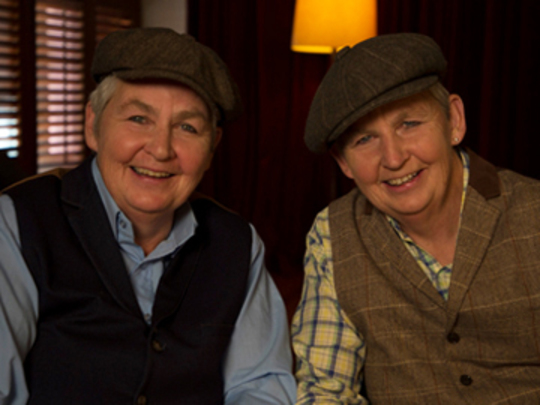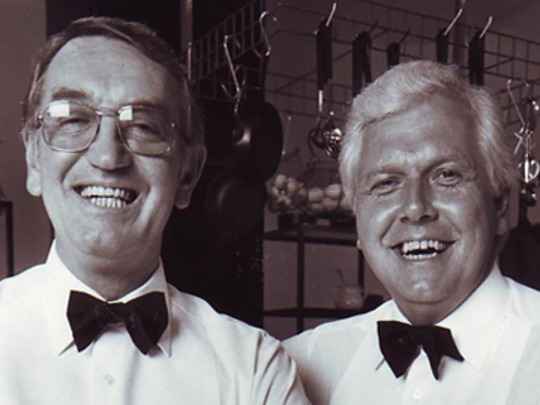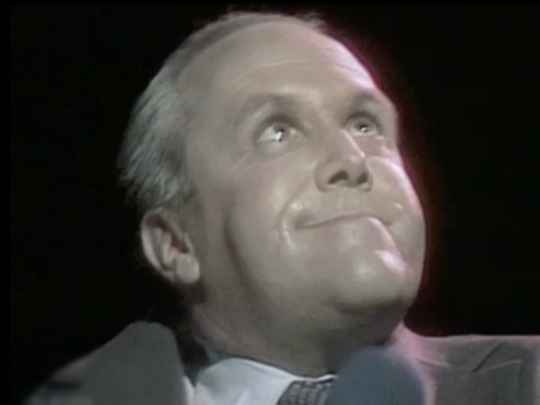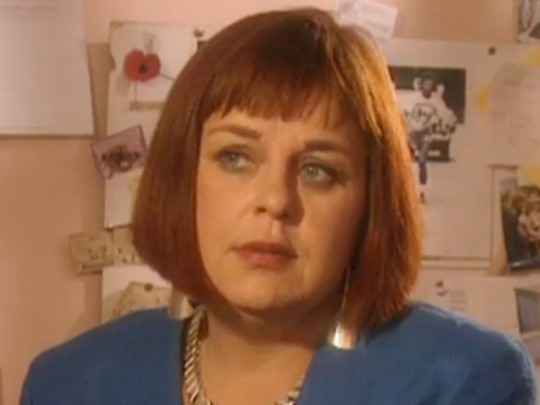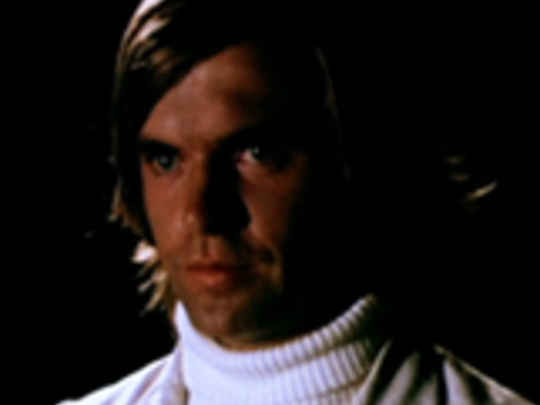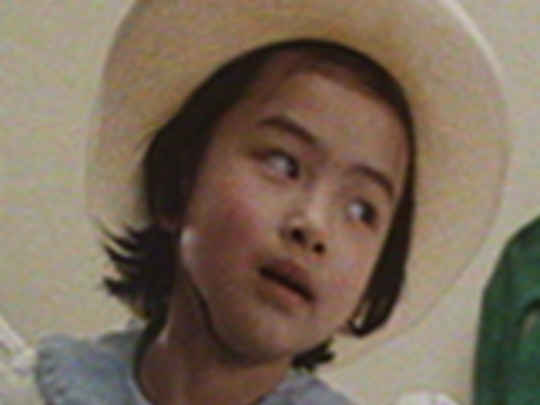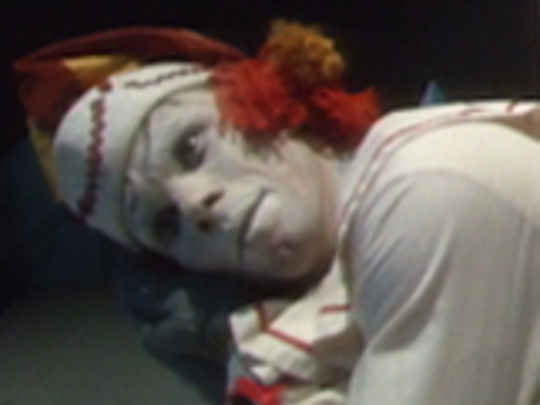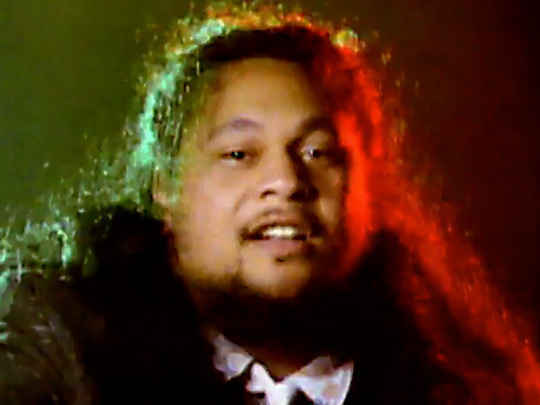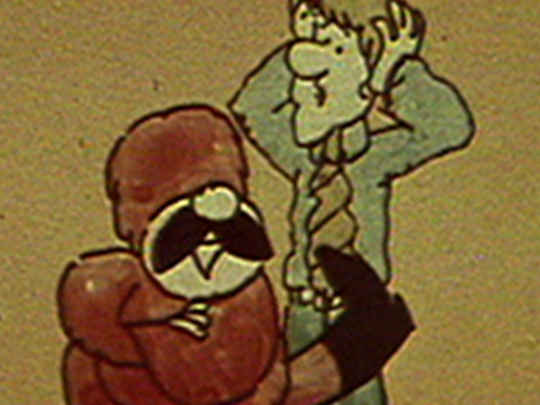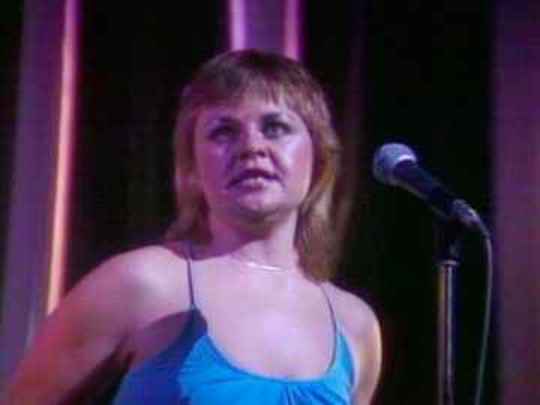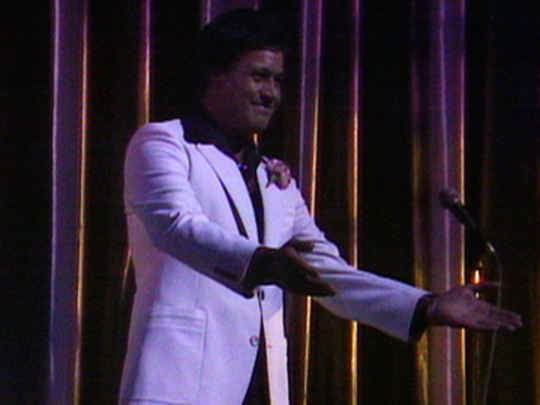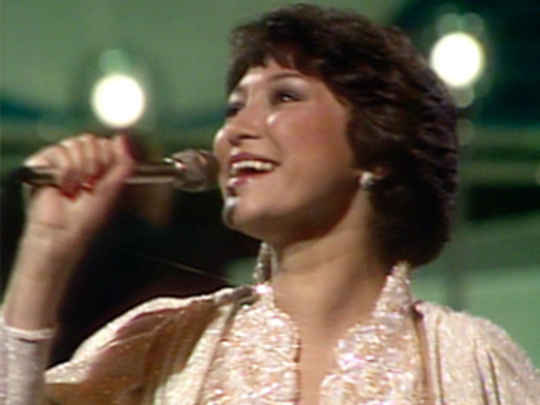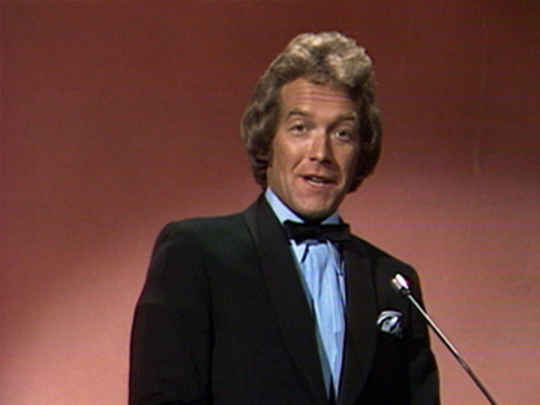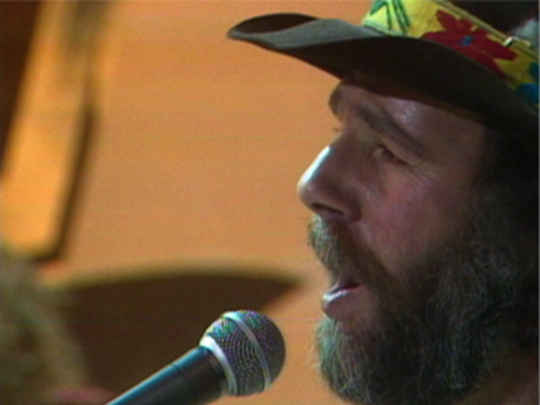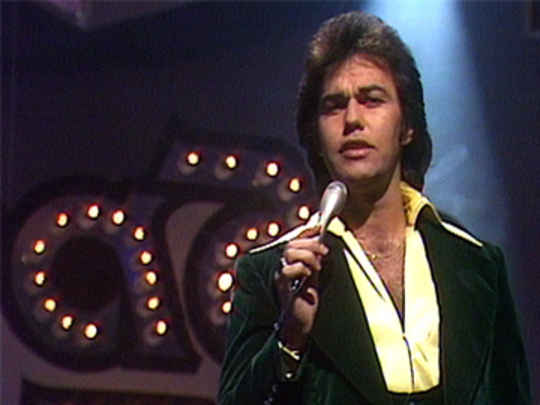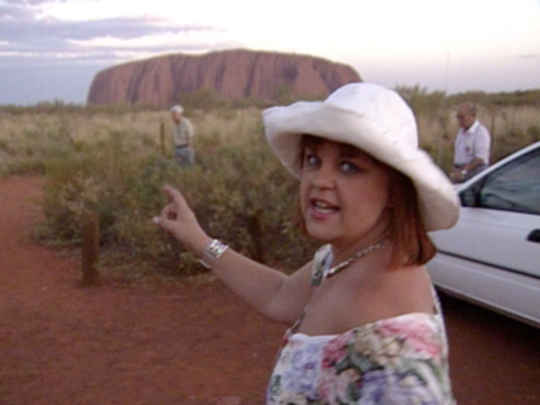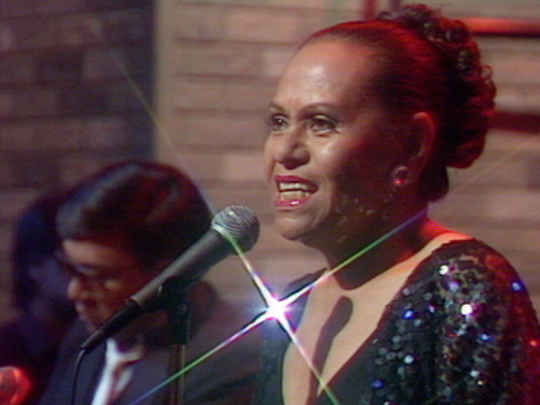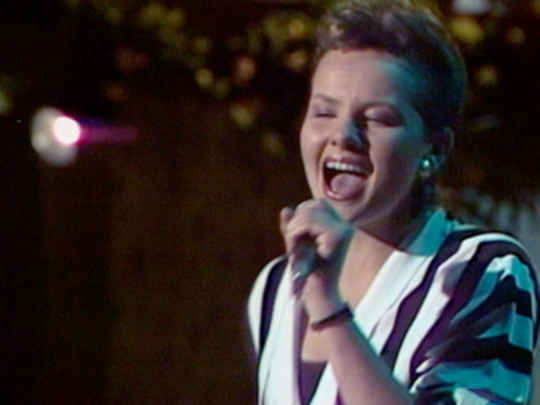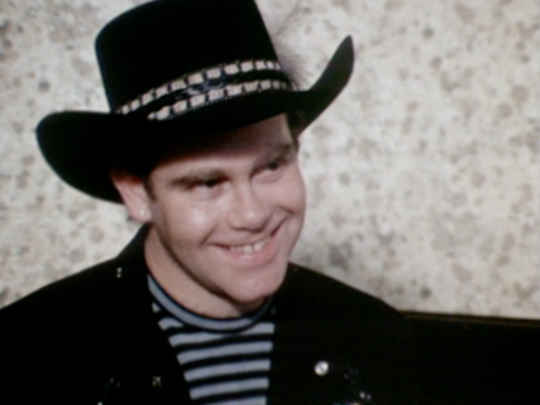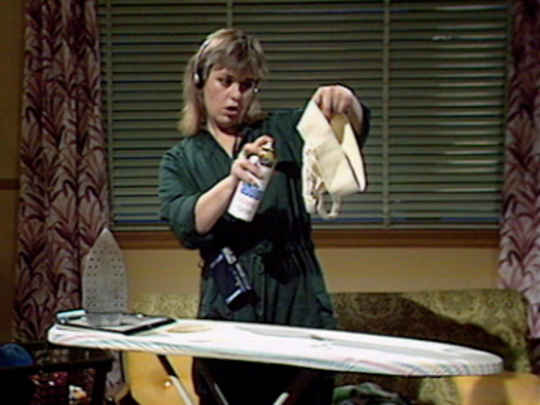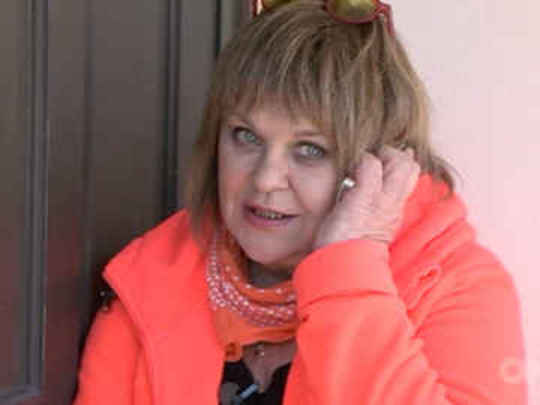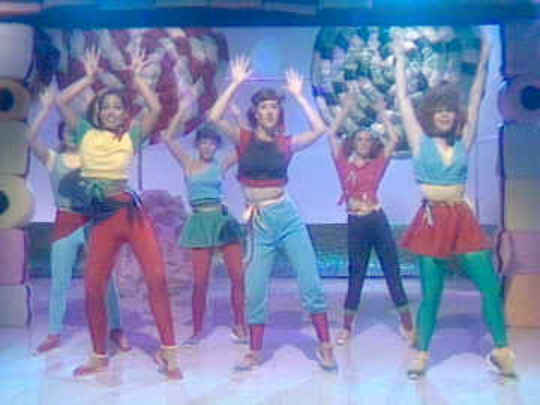Part one of five from this full length television programme.
Part two of five from this full length television programme.
Part three of five from this full length television programme.
Part four of five from this full length television programme.
Part five of five from this full length television programme.
The credits for this television programme.
1981 Royal Variety Performance
Television (Full Length) – 1981
Sounding Local
Note: this piece was originally written for NZ On Screen's Ginette McDonald Collection.
Plenty of us grew up with someone in our family who had "a telephone voice" — a fancier version of their usual way of speaking, the vocal equivalent of their Sunday Best. A somewhat rounder vowel, a crisper consonant, possibly going the whole hog of putting the "h" sound before the "w" in a word like "somewhat".
As a nation, we’ve never been sure that we love the way we sound. Early on in our broadcasting history, people who talked for a job were instructed to aim for something close to British received pronunciation. That’s how we sounded on the radio and TV news, and at public events, or when we were answering the phone in case it was someone we needed to impress.
So you wouldn’t want to underestimate the impact of the moment in 1981 when, in a live television spectacular broadcast from Auckland’s St James Theatre into the nation’s living rooms, we talked like ourselves in front of the Queen.
Ginette McDonald’s Lynn of Tawa was — I reckoned then, and still do — the jewel in the crown of that Royal Variety Performance. [Lynn first appears, 17 minutes into part three]. Lynn arrived in the middle of a massive showcase of pretty much everything New Zealand had to offer. We’d already shown the Queen and Prince Philip what we could do with top hats and canes, opera, ballet, sketch comedy and more country music than you could reasonably poke a stick at. The show was big, glitzy and so international that at most points you wouldn’t have known it was happening in the Antipodes. I’m guessing that was the plan.

Lynn of Tawa at the 1981 Royal Command Performance.
It doesn’t get much simpler — or riskier — than one person on stage, talking. Resplendent in a sky-blue harem-pant and shoestring-strap confection, Lynn adjusts the mike, checks it's working by saying "Wer-kung?", parks her chewing gum to one side as she bobs a "Good evening Your Majesty", and does a quick shout-out to her mum. New Zealand holds its breath — is this going to feel ok? What do we see when we look at ourselves while the Queen is watching?
"My name is Lynn and I come from a little place called Tawa?" she begins shyly, every line tonally a question. "We were the ones who sent you the paua shell tiara for a wedding present? You know, the one with the two rampant Kiwis holding the word ‘Progress’ between their beaks? And the matching cruet set? Do you remember that?"
Somewhere before "cruet set", everyone has decided. At home we love it, and the live audience loves it, and there's a moment that it's clear she knows she’s nailing it — there’s a twinkle and genuine glee in her smile.
Ginette talks about that night in her very excellent Funny As interview; about being able to surf the waves of laughter and spontaneous rounds of applause. She’d been a late addition to the lineup after a female impersonator got the flu, so the fact it was a triumph would have been even more satisfying — one of those cheerful "f**k you" moments you get in an industry that can be slow to give women opportunities.

All Things Being Equal: Ginette McDonald & Simon O'Connor.
This wasn’t the first time Ginette had been on our screens by any means. She was a teenager in the very first episode of local drama Pukemanu in 1971, but I wasn't allowed to watch it (I was 10, and possibly in bed). But I definitely saw her in Close to Home, our first ever soap opera, which ran from 1975 and was appointment viewing at our home for years. And in my last year of high school I devoured All Things Being Equal, the feminist sitcom penned by my favourite Listener columnist and cartoonist Rosemary McLeod with Ginette in mind (Rosemary had noted Ginette's dramatic and comic skills, long before Lynn of Tawa).

Publicity photo from 1987 TV series Peppermint Twist.
I sort of met Ginette when I was working at Avalon in the mid-1980s in the publicity department, and she was working as a producer and director, creating dramas like Peppermint Twist which were way before their time in terms of style and aesthetic. This was also when women were only just breaking into directing and producing, and they were tough gigs in what was then (and often still is) a male-dominated industry. I was slightly overawed by her, as I was again in the 1990s when we both found ourselves doing those touring comedy debates with Gary McCormick, David McPhail and Jon Gadsby.
We’ve bonded in many green rooms since — in particular at one of those small-town events where the organisers put us both up at a really fancy boutique resort in the middle of nowhere, which was tremendously kind...but then left us there all day with no access to food, and no transport to get any. Ginette, it turned out, had a sandwich in her handbag and cheerfully gave me half. I feel like we’ve been mates ever since. She tells the very best backstage stories, the kind you want to stay and listen to, instead of starting the show.
My mother Donna used her Telephone Voice most days, and not just on the phone. Donna sent me off as a teenager to local speech teacher Mrs Parrington to sort out my vowels in a Trinity College of London way. We were all terribly disappointed when later, as a journalism student, I did a voice test for Radio New Zealand and the report came back "Strong New Zealand accent" and we knew I would never read the news. Despite this, my mother was one of the people who had watched the Royal Variety Performance in 1981 and felt enormous pride as Tawa’s Lynn invited the Queen to the opening of the local paddling pool. She knew a successful command performance when she saw one.
It was one of many things our household admired Ginette for — there was also a gardening show, a travel series, and those debates. Plus a terrific trip that Donna and I took to Wellington in 2018 to see Ginette at Circa in Joan, penned by my other favourite Listener columnist and cartoonist, Tom Scott. This play about Tom’s mother also starred Ginette’s daughter, Kate McGill. Afterwards, Donna, Ginette and I had a glass of wine together in Circa’s bar. It seems mad that you can just hang out with a cultural icon, but you can.
So theatre, serious drama, TV presenting, work in front of and behind the camera. Plus a Lynn of Tawa TV special and a series, and the unforgettable 60 seconds of unmitigated joy that was the Mitre 10 TV commercial in 1985, which had a whole nation saying "now cut that out, Madonna".
Fred Dagg had arrived on our screens a little earlier, and in my head they have always been a perfect pair. Salt and pepper shakers — a paua shell cruet set if you will — of our rural and urban voices, him all disappearing consonants, her all dissolving vowels.
You know you’ve reached some level of maturity when you can laugh at yourself. Loving Fred and Lynn meant we were beginning to show signs of growing up.
- Michèle A'Court is a writer, presenter, actor and comedian, whose TV work includes 7 Days, Shortland Street and What Now? In 2010 the NZ Comedy Guild named her New Zealand's Female Comedian of the Decade.
